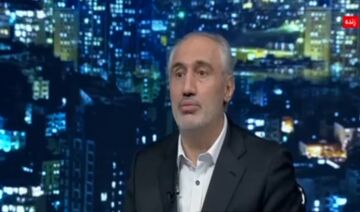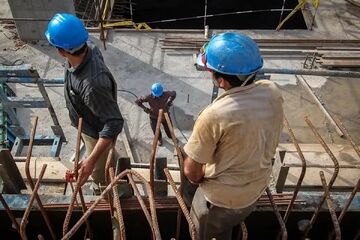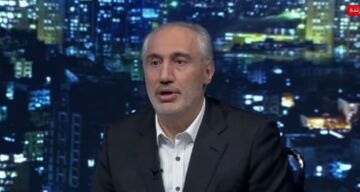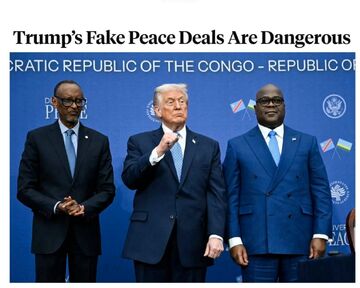Tehran(Bazaar): Nothing the Taliban aspires to have cordial relations with all of its neighbors, professes to have changed its prior ways, cut ties with foreign terrorist groups, and promises to respect minorities and women's rights, Andrew Korybko tells Bazaar in an exclusive interview that if Taliban keeps its word like it pledged, then there shouldn't be any problem developing relations between the Taliban's self-professed Islamic Emirate of Afghanistan and Iran.
Korybko also explains that Iran and Russia have yet to formally recognize the Taliban as Afghanistan's legitimate rulers though they both promised to interact pragmatically with it.
Following is the text of the interview:
Bazaar: As war and insecurity in Afghanistan have been increased severely, Herat and Kandahar fell, and Taliban members settled in the presidential palace after arriving in Kabul, it is appear that the Taliban will be play an important role in the next government. With the complete domination of this group in Afghanistan, what effect will we see on the trade relations between Afghanistan and Iran as a neighboring and neighboring country?
Korybko: The Taliban aspires to have cordial relations with all of its neighbors. The group professed to have changed its prior ways, cut ties with foreign terrorist groups, and promised to respect minorities' and women's rights. If it keeps its word like it pledged, then there shouldn't be any problem developing relations between the Taliban's self-professed Islamic Emirate of Afghanistan and Iran.
The group wants to reconstruct the war-torn country, to which end it must establish excellent trade ties throughout the region. Its representatives went to China last month and asked the People's Republic to help them with this. Afghanistan will therefore likely play a major role in Beijing's Belt & Road Initiative (BRI), which would also work out to Iran's benefit. That's because China and Iran recently clinched a 25-year strategic partnership deal in the spring.
China can pioneer a so-called “Persian Corridor” to Iran via Tajikistan and Afghanistan which would enhance multilateral trade and function as a branch of the China-Central Asia-West Asia Economic Corridor.
Bazaar: In your opinion, what effect has the 20-year presence of American forces in Afghanistan had on the country's economy and governance? Now, with the withdrawal of troops and other NATO member states, what fate awaits Afghanistan?
Korybko: The US failed to create a solid, sustainable foundation for the Afghan economy. The country reverted back to its prior role as a global heroin hub and organized crime exploded as a result. Corruption was rampant and not much of tangible significance was achieve in developing the real sector of the economy. Governance was also terribly ineffective and almost non-existent outside of the country's main cities where the Taliban steadily established so-called “shadow governments” in order to present itself as a “government-in-waiting” and facilitate its ultimate return to power.
Afghanistan's future is now brighter than ever before though since the Taliban are genuinely popular among the majority of the country's rural population even though they're severely distrusted by the approximately one-quarter of Afghans who live in urban areas. The group will have to work hard to win the latter category of their compatriots' trust, to which end it must rule justly and respect minorities' and women's rights. It'll also have to deliver on its promise to reconstruct the country, which China can certainly help with through its BRI investments.
Bazaar: Although Afghan officials are trying to prevent the country from being affected by US tensions with Iran, the economic effects of these tensions in Afghanistan are evident. What is your opinion on this?
Korybko: Afghanistan and Iran are natural economic partners for civilizational and geographic reasons, but the Taliban has a history of terrible ties with the Islamic Republic. There's no need to dwell on why that is since those memories are very painful for Iranians, but it's important to point out that the group genuinely seems committed to changing its prior ways and behaving much more responsibly.
In practice, this could see it finally respect the rights of the country's Shiite minority. It would be ideal if those people then functioned as economic bridges between the Taliban-run Islamic Emirate of Afghanistan and the Islamic Republic of Iran.
Bazaar: Taliban spokesman Sohail Shaheen said yesterday that the Kabul government had been overthrown and that an all-encompassing Islamic military government approved by Iran and Russia would come to power. Does he mean an all-encompassing government and Islamic system, does the Taliban mean the Islamic Emirate?
Korybko: Iran and Russia have yet to formally recognize the Taliban as Afghanistan's legitimate rulers though they both promised to interact pragmatically with it.
Moscow also said that it'll withhold recognition until the UNSC passes a relevant resolution which would be greatly influenced by how the group treats minorities and women in the coming future.
As for Mr. Shaheen's envisioned government, he is indeed referring to the Taliban's self-professed Islamic Emirate of Afghanistan and previously elaborated during an interview with the BBC that this means that all of Afghanistan's many groups will be able to participate in its new Islamic system. Its structure probably won't resemble Western democratic ones that much, but it'll represent the will of the Afghan people.
















نظر شما